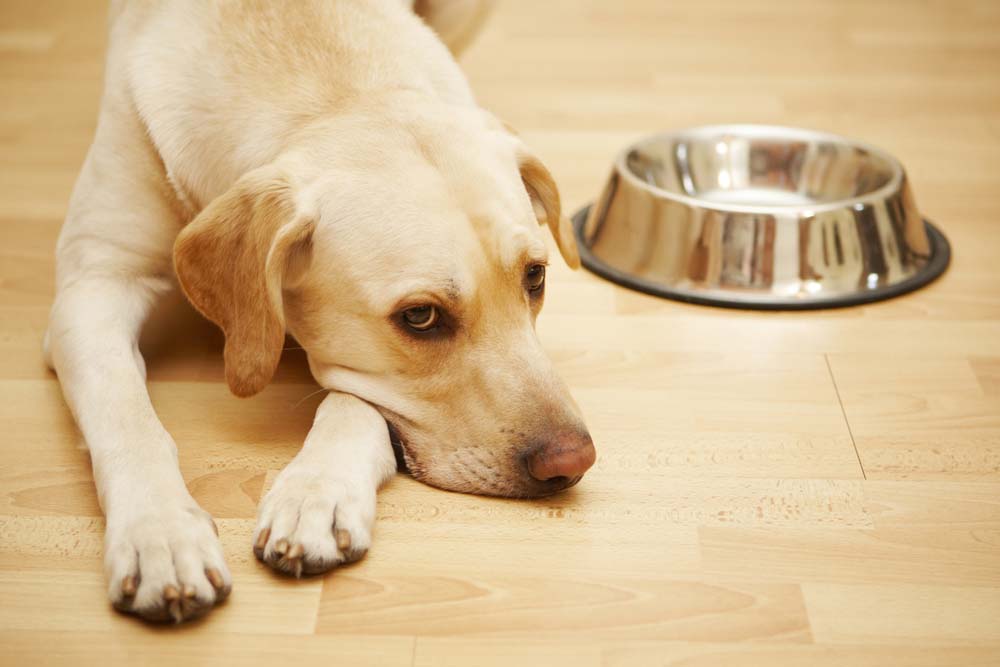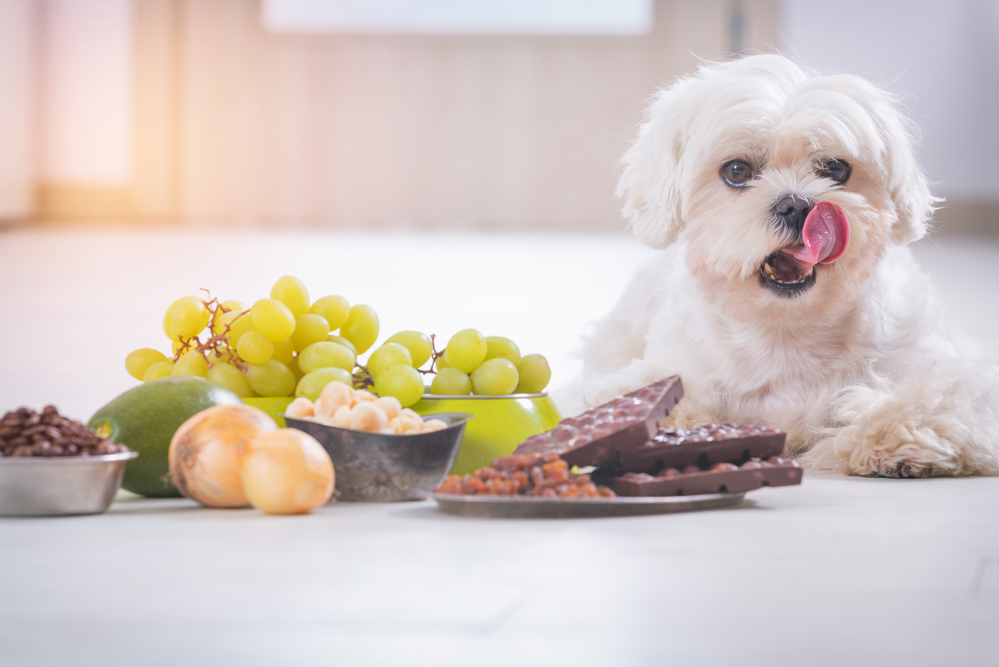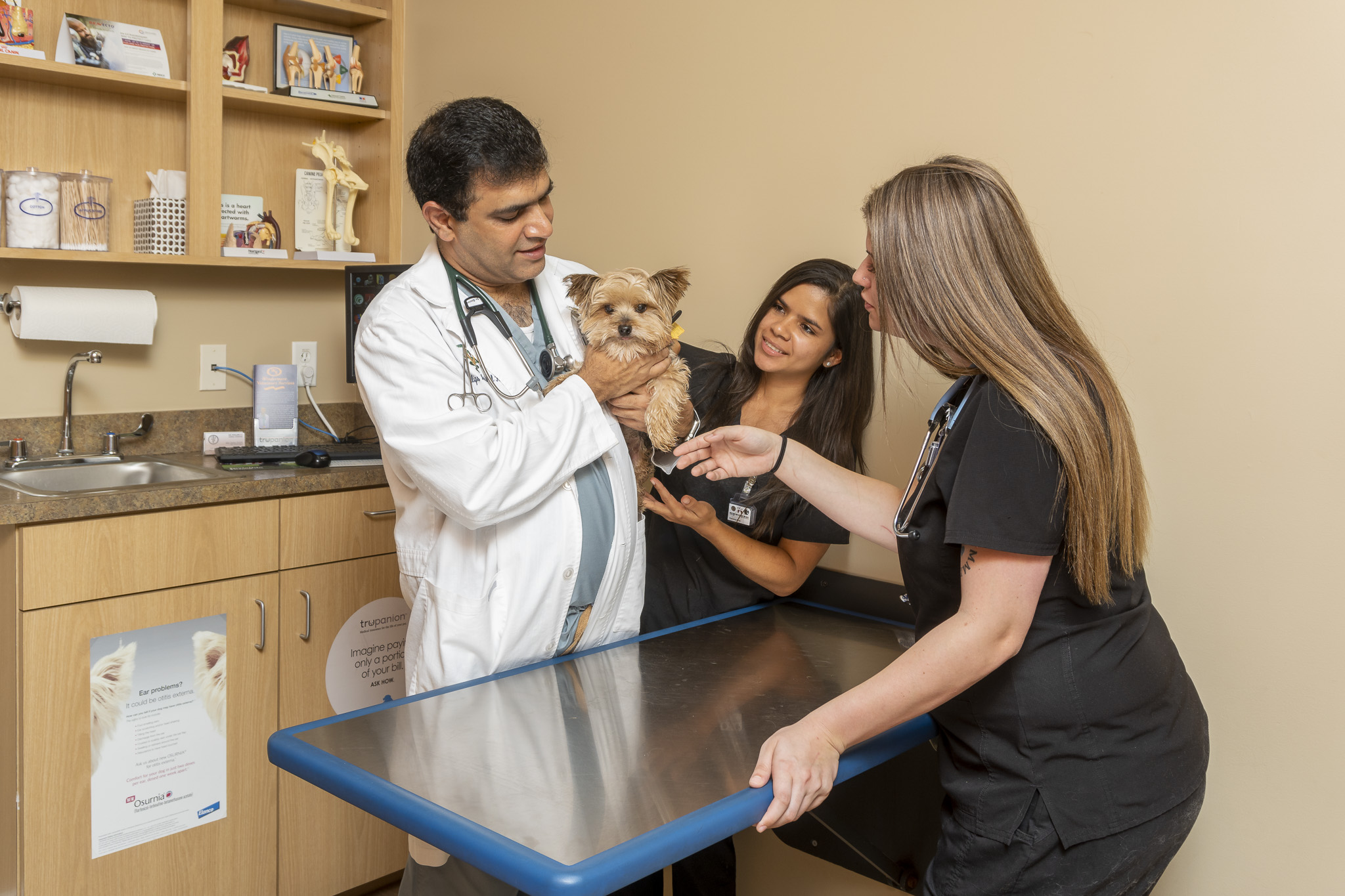
We're here for you
Emergency?
If your pet is exhibiting concerning symptoms or experiencing a medical emergency, please call our clinic at (407) 352-2579. We’ll help you through it.
Many pets can’t wait until they get to eat. They may even bother their owners incessantly until they get their fair share of food. If your pet has suddenly stopped eating, it’s understandable that you may be concerned about their health and well-being.
Decreased appetite in pets can often be a sign of a more serious health condition, so it’s important that you monitor their eating behaviors and try to help them get some nutrition.
Common Reasons Your Pet Is Not Eating

There are many reasons your pet may be eating less or nothing at all. Some reasons may simply be emotional changes, and others may indicate a health condition that will need further treatment. Here are the most common reasons for decreased appetites in animals:
Anxiety or Stress
Pets feel all kinds of emotions similar to humans. If there have been any changes in your living environment or if you have been away from your pet for some time, they may start to feel anxious or stressed. This emotional stress could be due to separation anxiety if you went away from home for a few days. Usually, this is a temporary cause of under-eating.
Your Pet Eats Too Many Snacks
Giving pets treats throughout the day can be a fun way to show our love or to encourage certain training behavior. But if your pet is suddenly not eating their actual meals, it could be a sign that you are over-feeding them snacks during the day. Or, you may be putting too much food in their bowl to begin with so that they eat throughout the day and thus don’t feel hungry by dinner time.
Your Pet Doesn’t Like the Taste of the Food
Sometimes, your pet simply may not like the taste of the food you are giving them. While you don’t necessarily need to go out of your way to get them the most expensive pet food, it could be worth trying out some different brands of pet food until you find something they like. Once you find pet food they like, they will be able to stay full and satisfied throughout the day.
Medication Side-Effects
If your pet was prescribed medication by a vet for a previously diagnosed health condition, check the list of side effects associated with the drug. Many commonly used medications in both humans and animals can cause symptoms such as lethargy or a decreased appetite. If your pet still refuses to eat, be sure to check in with a medical professional to see if it’s possible to switch medications.
Dental Pain
Dental pain could also be the root cause of a limited appetite in dogs and other animals. Oftentimes, owners don’t recognize dental pain in their pets until their teeth get evaluated by a vet. This means sometimes a pet could be dealing with a cavity or gum infection that is causing them too much pain to continue eating as they normally would. If you suspect dental pain may be the cause, have your pet's teeth seen by a professional.
Underlying Illness
Underlying illness is a common reason behind food aversions or avoiding food completely in animals. Some health conditions frequently associated with a limited appetite include:
Intestinal Parasite
If your pet is having other digestive troubles such as diarrhea, bloody stools, or weight loss, they may have an intestinal parasite. Hookworms and other types of parasites can attack the wall of the intestines in pets and make it more challenging for them to eat or digest their food. The symptoms associated with these parasites can cause a pet to avoid eating so as not to increase intestinal inflammation. If your pet has any of the above symptoms, they will need to be taken to a vet as soon as possible.
Kidney Disease
Since kidneys operate as natural filter systems, when they become inflamed they can no longer filter blood properly from the bodies of our pets. When kidneys stop filtering out excess blood, it will build up in a pet’s body and create pain and pressure in their bellies. This pain and pressure will make it more painful for them to break down food, therefore their appetite may decrease until they are able to get proper treatment from a veterinarian.
Cancer
Depending on the type of cancer your pet is diagnosed with, they may keep eating as normal. If they undergo radiation or other cancer treatment, however, the treatment may unintentionally affect the cells in the stomach and surrounding intestines, making it harder to keep down food.
What Should You Do if Your Pet Refuses To Eat?

If your pet continues to avoid their meals, it may be worth trying some at-home strategies to increase the likelihood of them enjoying their food again. If at-home strategies don’t help the problem, you will need to take your pet to the nearest clinic for an in-person evaluation.
Add Water or Chicken Broth to Dry Food
Sometimes your pet may simply be having an issue eating dry food. While you may not want to buy soft food containers for every meal, it would be worth trying to make their dry food softer to digest. Try adding a cup of water or chicken broth alongside their dry food for higher moisture levels.
Incorporate Probiotics To Improve Pet Digestion
If your pet has frequent digestive problems an over-the-counter probiotic from a pet food store could help your pets slowly rebuild the healthy bacteria in their gut. Incorporating probiotics will not be an immediate fix, though you may see improvement in your pet's eating habits over time.
Consult With a Vet
If home remedies aren’t helping, make an appointment with a certified veterinarian to get a proper evaluation. A vet can help you understand if there are any serious underlying health issues causing your pet to stop eating.

Step One:
Call us to book your pet’s appointment.

Step Two:
Our expert vet will take care of all of your pet’s needs.

Step Three:
Get back to enjoying your happy and healthy life with your furry best friend.

Get the Best Care for Your Pet
Come Visit Dr. Qasim
Book your pet’s appointment with Dr. Qasim to ensure a long, happy life together.

We love and care for each patient as if they were our own pet.
Meet Our Team of Animal Lovers
Dr. Bilal Qasim, DVM, established Dr. Phillips Animal Hospital in 2011 after practicing veterinary medicine for over 17 years with the help of talented and caring veterinary technicians.


